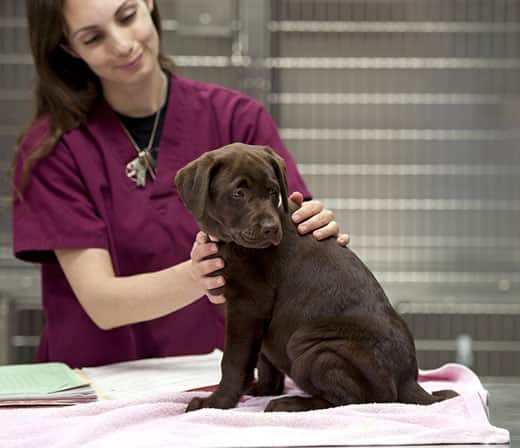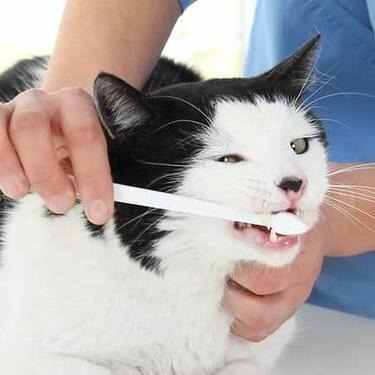
-
Find the right food for your pet
Take this quiz to see which food may be the best for your furry friend.
Find the right food for your pet
Take this quiz to see which food may be the best for your furry friend.
Featured products
 Small & Mini Savory Stew with Chicken & Vegetables Dog Food
Small & Mini Savory Stew with Chicken & Vegetables Dog FoodA delicious complement to the nutrition of Science Diet Small & Mini 7+ dog food
Shop Now Adult Healthy Cuisine Roasted Chicken, Carrots & Spinach Stew Dog Food
Adult Healthy Cuisine Roasted Chicken, Carrots & Spinach Stew Dog FoodDelicious roasted chicken paired with tender vegetables in a succulent stew
Shop Now Adult 7+ Perfect Digestion Chicken, Whole Oats & Brown Rice Recipe Dog Food
Adult 7+ Perfect Digestion Chicken, Whole Oats & Brown Rice Recipe Dog FoodScience Diet's breakthrough nutrition supports ultimate digestive well-being & healthy microbiome for dogs age 7+
Shop NowFeatured products
 Adult Savory Entrée Can Variety Pack Cat Food
Adult Savory Entrée Can Variety Pack Cat FoodPrecisely balanced nutrition with the delicious taste of savory minced chicken to help fuel the energy needs of cats during the prime of their life
Shop Now Adult 7+ Tender Tuna Dinner Cat Food
Adult 7+ Tender Tuna Dinner Cat FoodWith delicious chunks in a decadent gravy
Shop Now Adult 7+ Senior Vitality Chicken & Vegetable Stew Cat Food
Adult 7+ Senior Vitality Chicken & Vegetable Stew Cat FoodImproves Everyday Ability to Get Up & Go
Shop Now -
Dog
- Dog Tips & Articles
-
Health Category
- Weight
- Food & Environmental Sensitivities
- Urinary
- Digestive
- Joint
- Kidney
-
Life Stage
- Puppy Nutrition
- Adult Nutrition
- Senior Nutrition
Cat
- Cat Tips & Articles
-
Health Category
- Weight
- Skin & Food Sensitivities
- Urinary
- Digestive
- Kidney
-
Life Stage
- Kitten Nutrition
- Adult Nutrition
Featured articles
 Do Dogs and Cats have Belly Buttons?
Do Dogs and Cats have Belly Buttons?Learn whether cats & dogs have belly buttons like humans, what the function is, and if there are any health concerns associated with it.
Read More Why Are Dogs and Cats So Cute?
Why Are Dogs and Cats So Cute?If waggy puppy dog tails and furry kitten yawns make you swoon, you're not alone. Why are cats so cute? And, dogs too! Let's find out!
Read More Does My Pet Hate Me?
Does My Pet Hate Me?Learn tips for bonding with your pet if you've ever thought, 'My dog doesn't like me, or 'Why do I have a standoffish cat?'
Read More -


"The backbone. The lifeblood. The heart." These are some of the terms faculty and staff use to describe the veterinary technicians who work at Cornell University Hospital for Animals.
What do vet techs do? Sure, they take care of your furry friends during visits to the veterinarian's office, but did you know that veterinarian technicians are well-trained and highly skilled professionals who are essential to the day-to-day functioning and successful operation of a veterinarian's office?
What Is the Difference Between a Veterinarian and a Veterinary Technician?
Veterinarians are doctors who hold a degree from an accredited college or university. Vets "use problem-solving skills and in-depth knowledge of biological, physical and social science to diagnose, treat and prevent animal diseases and help to maintain the quality of our environment," says the UC Davis School of Veterinary Medicine. "Additionally, they advance medical technology through education and research." Vets are qualified to diagnose your pet's health issues, propose treatment, prescribe medicine and perform surgery.

What do vet techs do? Veterinary technicians (sometimes referred to as veterinary technologists) are now being referred to as veterinary nurses more and more in the United States as they are referred to in the rest of the world. The nonprofit organization National Association of Veterinary Technicians in America (NAVTA), explains that veterinary technicians "are educated to be the veterinarian's nurse, laboratory technician, radiography technician, anesthetist, surgical nurse and client educator." All of these roles are what keeps the office, clinic and hospital running in top-top shape.
What Is a Veterinary Assistant?
Another key staff member is the veterinary assistant. They do not have to earn a degree, notes NAVTA, as they are usually trained on site, but some organizations offer certification courses. Depending on their training and the area in which they are employed, veterinary assistants perform duties such as setting up medical equipment, collecting specimens and maintaining the cleanliness of the exam and surgical areas. In some cases, again depending on regulations, their duties only can be performed under direct supervision of a vet technician and/or a veterinarian.
Education Requirements for Veterinary Technicians/Nurses
Vet nurses are extremely knowledgeable and more than capable of taking great care of your pets.
To be employed as a veterinary nurse in most countries, you have to earn a specialized degree(s) from an accredited school and routinely recertify your training. Additionally, techs in the U.S. must past their state's required licensing, which differs from state to state.
During their college careers, vet nurses go through rigorous instruction focused on science, math and technology. For instance, the two-to-three year program at the University of Guelph Ridgetown in Ontario, Canada, offers these programs, among many others:
- Anatomy and physiology
- Animal dentistry
- Hematology
- Surgical exercises
- Radiology
- Veterinary parasitology
As you can see by just this small sampling of classes, veterinary techs know their stuff!


Tasty Tips
Young pets may need several visits in their first year for vaccinations. Adult pets generally benefit from annual check-ups, while senior or special-needs pets might require more frequent visits.
What Do Vet Techs/Nurses Do?
Who's usually the first person to greet you and your pet in the exam room during a visit to the vet's office? A vet nurse!
They're invaluable to the care of your beloved furry friends and are responsible for numerous tasks. Under the veterinarian's direction and/or supervision, they're authorized to perform some of the following duties, as noted by the The Royal College of Veterinary Surgeons (RCVS) in the United Kingdom:
- Weighing your pet
- Taking their temperature
- Drawing blood
- Injecting medications
- Preparing animals for surgery
- Administering vaccines
- Dental cleaning
- Monitoring anesthesia
Veterinary nurses are indispensable to the healthy and happiness of your pets. Don't be afraid to ask your veterinary nurse some questions. Not only will you learn more about your their specialties and skills, you'll discover why they love doing what they do.
What Else Do Vet Nurses Do?
In addition to traditional technician work, nurses have the opportunity to specialize in fields like critical care, exotic animals, nutrition, and more. What do vet techs do out there? The program World Vets: International Aid for Animals, for example, sends veterinary nurses into far reaches of the globe to assist with urgent care and surgeries. When hurricanes, earthquakes and other natural disasters hit, vet techs are one of the first on the ground to assist injured animals.
Veterinary nurses also foster relationship with peers across the globe through organizations such as the International Veterinary Nurses and Technicians Association that promotes connectivity among vet techs worldwide. Vet techs are constantly learning about new and exciting research and getting hands-on experiences.
Let's Hear It for Vet Techs!
Did you know that National Veterinary Technician Week is celebrated in mid-October? Since its inception by NAVTA in 1993, Vet Tech Week, as it's affectionately known, highlights the amazing and unsung hard work that veterinary techs perform.
Michael Cavanaugh, DVM, DABVP (Emeritus), the Chief Executive Officer of the American Animal Hospital Association, rightly points out the importance of designating a week devoted to veterinary techs because they "play an essential role in the delivery of excellent patient and client care in every veterinary practice. We must always remember to thank them for the endless love and care they pour into their work, and must never take for granted the amazing contributions they make." Simply put, vet nurses excel at their job, and it's a demanding one.
What do veterinary nurses do? So much. They're present during the good times and the bad, whether it's welcoming a new fur baby or saying good-bye to a beloved friend. Most times, they're the person who you speak with on the phone when you make an urgent call to the vet or have a routine question.
Don't hesitate to give your vet nurse a shout out each and every time they help your dog or cat! Let your veterinary nurses know just how much you appreciate and support them.


Christine O'Brien is a writer, mom, and long-time cat parent whose two Russian Blues rule the house. Her work also appears in Care.com, What to Expect, and Fit Pregnancy, where she writes about pets, pregnancy, and family life. Find and follow her on Instagram and Twitter @brovelliobrien.
Related products
Related articles

Crystals in your pet's urine can be common, but can also indicate a deeper health concern. Learn about the different types of crystals & what they mean.

Learn the ins and outs of a televet appointment before you talk to a vet online.

Check out our list of pet-friendly U.S. cities that are excellent travel options, offering off-leash dog parks and pet-friendly restaurants & hotels.

Learn about veterinary dental care for your pet, including deep teeth cleaning procedures, which can help your dog or cat maintain proper dental health.

Put your pet on a diet without them knowing
Our low calorie formula helps you control your pet's weight. It's packed with high-quality protein for building lean muscles, and made with purposeful ingredients for a flavorful, nutritious meal. Clinically proven antioxidants, Vitamin C+E, help promote a healthy immune system.
Put your pet on a diet without them knowing
Our low calorie formula helps you control your pet's weight. It's packed with high-quality protein for building lean muscles, and made with purposeful ingredients for a flavorful, nutritious meal. Clinically proven antioxidants, Vitamin C+E, help promote a healthy immune system.

